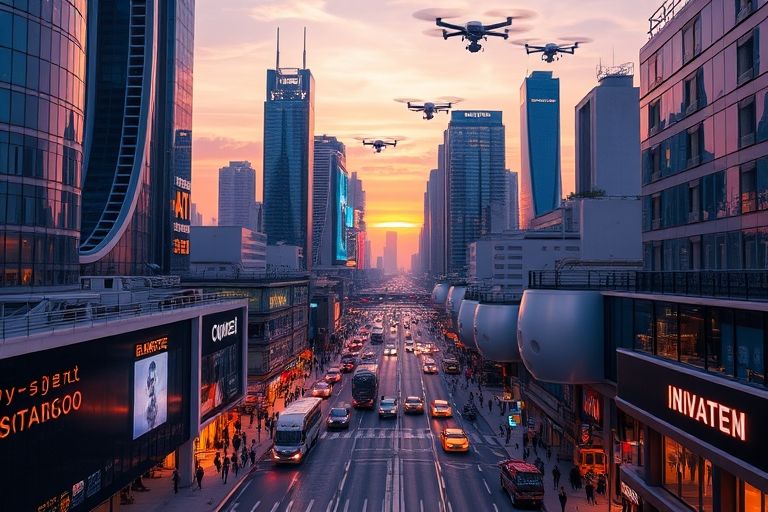
Smart cities are the future of urban living, and artificial intelligence (AI) is playing a crucial role in making this vision a reality. AI-powered technologies are being used to develop and manage cities that are efficient, sustainable, and responsive to the needs of their citizens. In this article, we'll explore the various applications of AI in building smart cities and the advantages they offer.
AI is being used in a variety of ways to make cities smarter and more efficient. Here are some of the most important applications:
One of the biggest challenges of urban living is managing traffic flow. AI-powered systems can analyze real-time traffic data and adjust traffic signals to optimize traffic flow. For example, in Singapore, the government has deployed an AI system called "Journey Time Prediction," which collects data from GPS-enabled taxis to predict traffic conditions and adjust traffic signals in real-time.
AI can help cities reduce their energy consumption and carbon footprint. By analyzing data from sensors and smart meters, AI-powered systems can identify areas where energy is being wasted and suggest ways to reduce consumption. For example, in Barcelona, the government has implemented an AI system that analyzes energy consumption data from buildings and provides recommendations on how to reduce energy waste.
AI-powered systems can help improve public safety in smart cities. For example, in London, the Metropolitan Police are using an AI system called "Predictive Policing" to analyze crime data and predict where crime is likely to occur. This enables them to allocate resources more effectively and prevent crime before it happens.
Here are some of the key advantages of using AI to build smart cities:
AI-powered systems can help cities operate more efficiently by automating processes and reducing waste. This can lead to cost savings and improved services for citizens.
Smart cities built with AI can be more sustainable by reducing energy consumption and carbon emissions. This can help to mitigate the effects of climate change and create a more livable environment for citizens.
AI-powered systems can help to improve the quality of life for citizens by making cities safer, cleaner, and more responsive to their needs. This can lead to a more vibrant and thriving community.
Here are some examples of cities that are already using AI to become smarter:
AI is transforming the way we live in cities, and smart cities are quickly becoming a reality. By using AI-powered systems to optimize traffic flow, reduce energy consumption, and improve public safety, cities can become more efficient, sustainable, and responsive to the needs of their citizens. As we continue to develop new AI technologies, we can expect to see even more exciting innovations in the world of smart cities.